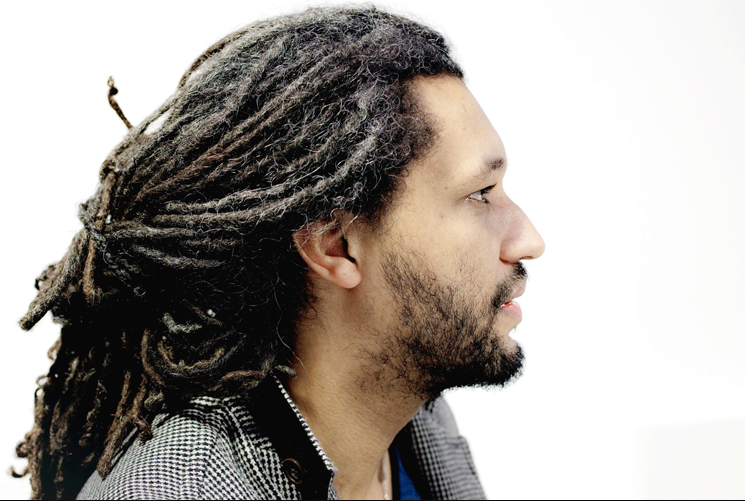Félicité: An interview with director Alain Gomis

Director Alain Gomis brings Félicité to the 2017 Berlin International Film Festival, and it’s a delicately balanced story that addresses hardship head on without seeming in the slightest bit miserable. Gomis has shown Kinshasa, the capital of the Democratic Republic of the Congo, in all its harsh beauty, unafraid to reveal the worst of the city along with its best. The character of Félicité herself shows incredible determination in the face of a very bad situation, and is one of the strongest female characters captured on film in quite some time. We spoke with Alain Gomis at this year’s Berlinale about just what went into creating such a strong character.
Félicité is a truly formidable character. What was the creative process for coming up with such a woman?
There are really strong women in my family, and I discovered the music of some great Kinshasa bands, and this helped to form the idea of the character, Félicité: a singer who is so deep and so literal in so many ways.
And how does her personality influence the journey she must go on?
The direction of the character is that she’s quite a political character in some ways, and yet she must change. She must face her reality.
You don’t shy away from showing Kinshasa – both the bad and the good. There is corruption and poverty, and yet still such optimism. How did you decide how you would portray the city itself?
The approach was quite difficult and complicated, but I needed to show her sincerity and complexity and how she would develop when faced with such a situation in Kinshasa. But everything in the film, including the city itself needed to be sincere, and not at all fake.
There are many contrary elements to the character. In some respects, she is not always likeable. Did you deliberately try to emphasise her softer side in order to humanise her?
I needed to demonstrate tenderness, and to show hope. And because there is hope, it becomes a hard and complicated journey for the character, with a lot of difficulties. But we see the humanity in this character, because she still hopes and yearns for the beauty of life.
There is some misery in the film, and yet it’s not miserable. How did you balance the misery she’s facing with a sense of optimism?
I was cautious about fatalism, and the idea of showing too much difficulty in her life. I really wanted to show how someone’s whole life can be built by dreams, and that these dreams lay inside. And yet the beauty of it all doesn’t come from dreams, it comes from reality, from what we could do when faced with such difficulties, and we become who we are, and we love life because of these struggles that we face in everyday life.
The music in the film is stunning, and so appropriate for setting the mood. How did you go about choosing the music for each particular scene where Félicité has to sing? She’s a nightclub singer after all!
It’s all about the energy. For example, there’s the scene where Félicité’s son is in hospital (after a motorbike accident that sets the story in motion), and a woman steals her money, and the song she sings later reflects that; and likewise, when her son receives some very bad medical news, the next song reflects that, and that song is telling the story of a woman who doesn’t want to die before her children visit her. But there always needs to be appropriate energy in the songs that were chosen for the film, mixed with what is actually going on in the film. Sometimes it’s just obvious to me, emotionally, or even mystically or spiritually, but I feel a real connection, even if it’s not immediately obvious. And yet for me, it is obvious.
Oliver Johnston
Read our review of Félicité here.
Read our interview with the star of Félicité, Véro Tshanda Beya Mputu, here.
For further information about the 67th Berlin Film Festival visit here.
Read more reviews from the festival here.
Watch the trailer for Félicité: An interview with director Alain Gomis here:



























Facebook
Twitter
Instagram
YouTube
RSS